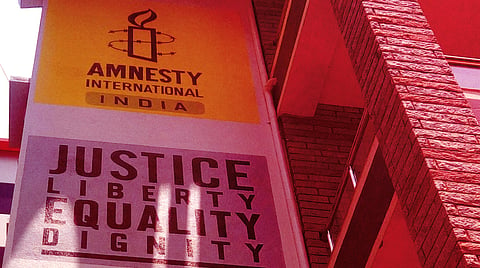The state of suspension
Santosh Yadav was in a crowded bus speeding towards Kanker, on his way to meet journalist Kamal Shukla, when I had called him in late September 2020. Only a few days ago, Shukla was thrashed by a mob in public for his scathing reports and social-media posts on the sand-mining mafia flourishing in the Congress-ruled state of Chhattisgarh. The editor of an independent daily, Shukla was one of the few journalists in the state who stood up for Yadav when he was arrested in 2015 under false charges of colluding with Maoist rebels. Stringers like Yadav, who work in conflict areas like Bastar, are hardly recognised as journalists, even by the newspapers they toil for.
I was the first to tell Yadav that the Amnesty International India office had officially been shut down after the central government froze their accounts in September 2020. He sounded the least surprised. "This is what happens if anyone helps journalists or Adivasis," he said. The human-rights 'watchdog', as Amnesty International has often been referred to by the media, has been documenting and exposing the Indian government's rights violations since the 1970s, but perhaps most meticulously since 2013. Their work has ranged from documenting human-rights violations by the armed forces personnel in Kashmir, to research on the acquisition of adivasi land by a public-sector company in central India. Last year, Amnesty had also criticised how the foreigners' tribunals in Assam had been arbitrarily declaring residents foreigners, and was sending them to detention centres. Most recently, in August 2020, they published a report on the glaring impunity that the Delhi Police appeared to be enjoying, despite evidence of their complicity in the February 2020 Delhi violence. More than 50 people were killed in the riots, and hundreds were injured or displaced from their homes – most of them Muslims.

